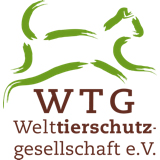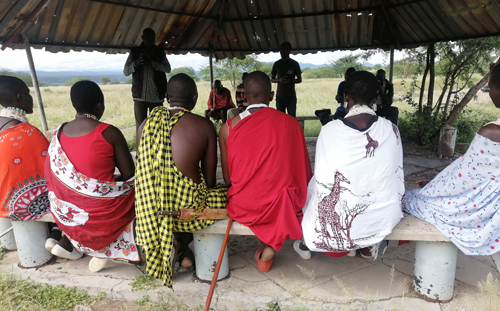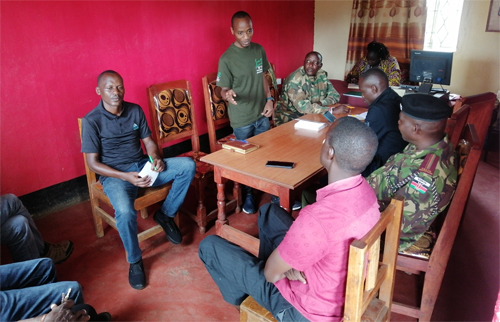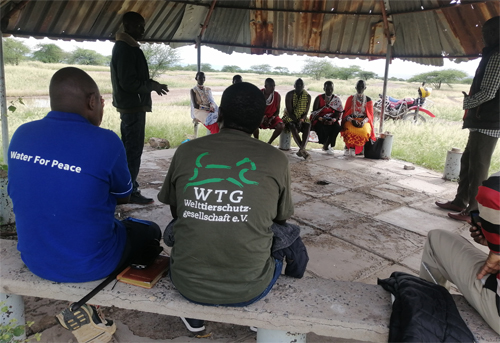
 In late 2023 and early 2024, Kenya witnessed a surge in donkey theft and bush slaughter, impacting several counties. This trend jeopardizes both donkey welfare and the livelihoods of those reliant on them. Moreover, the harvested meat, disguised as beef, enters the food supply, posing health risks. Notably, all donkey carcasses lacked skin, suggesting a link to the global donkey skin trade. An undisclosed aerial satellite image of the Star Brillant abattoir (one of the four previous donkey slaughterhouses in Kenya) revealed donkey skins being dried at an abattoir, despite donkey abattoirs being shut down in 2020 by the then Cabinet Minister for Agriculture, Livestock and Fisheries
In late 2023 and early 2024, Kenya witnessed a surge in donkey theft and bush slaughter, impacting several counties. This trend jeopardizes both donkey welfare and the livelihoods of those reliant on them. Moreover, the harvested meat, disguised as beef, enters the food supply, posing health risks. Notably, all donkey carcasses lacked skin, suggesting a link to the global donkey skin trade. An undisclosed aerial satellite image of the Star Brillant abattoir (one of the four previous donkey slaughterhouses in Kenya) revealed donkey skins being dried at an abattoir, despite donkey abattoirs being shut down in 2020 by the then Cabinet Minister for Agriculture, Livestock and Fisheries
Investigations by ANAW and WTG revealed that donkeys for slaughter are sourced from Tanzania and Ethiopia, hinting at a resurgence in illegal cross-border smuggling of donkeys. Despite an Africa-wide ban on the trade, which is currently in force having been passed by African state leaders at the conclusion of the African Union summit in Ethiopia on February 18, 2024, there are concerns that it may spur stockpiling due to anticipated shortages. This has necessitated the need for urgent action to ensure that the policies enacted are being enforced effectively and consumers are protected.
ANAW, with support from, Welttierschutzgesellschaft e.V (WTG), is addressing this by bolstering donkey security and curbing illegal movement along Kenya's borders with Tanzania and Ethiopia. This involves surveillance, community awareness, and collaboration with security border patrol units, journalists to disseminate information and other key stakeholders and deter illicit activities. Additionally, data collection efforts will be intensified to support enforcement actions.
At the end of this project, we will have achieved:
- Increased awareness about the negative effects of illegal donkey trade and relevant regulations among border county veterinary officials, border communities, and county administrative officials.
- Strengthened capacity among stakeholders regarding the actions needed to stop the illegal movement of donkeys, improving their ability to address the issue effectively.
- Enhanced collaboration through the consultative meetings with Tanzanian and Ethiopian border security units in addressing the illegal movement of donkeys across borders.

